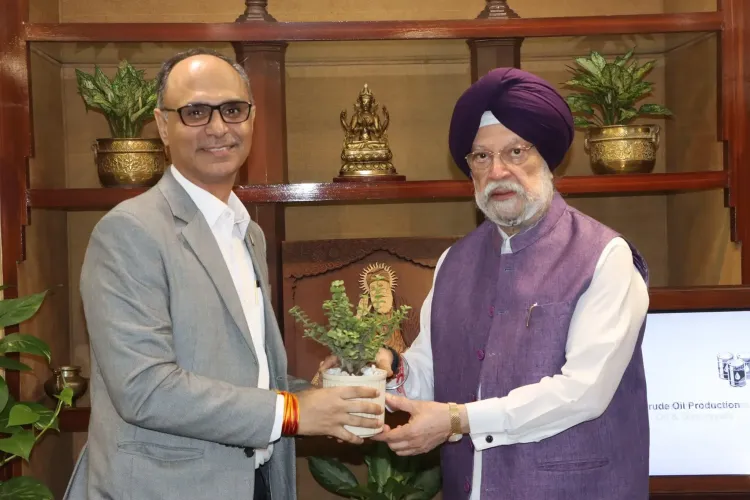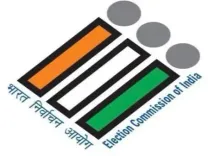Did BPCL Achieve Record Refinery Capacity Utilization at 40.5 Million Tonnes in FY25?

Synopsis
Key Takeaways
- BPCL achieved 40.5 MMT refinery throughput.
- 115% capacity utilization is a record for BPCL.
- Net profit stood at Rs 13,275 crore for FY25.
- 5 MW GH2 project completed at Bina refinery.
- Commitment to Net Zero emissions by 2040.
New Delhi, May 2 (NationPress) The Minister of Petroleum and Natural Gas, Hardeep Singh Puri, praised Bharat Petroleum Corporation Ltd (BPCL) for reaching an unprecedented refinery throughput of 40.5 million metric tonnes with a remarkable 115 percent capacity utilization. The oil giant also reported a net profit of Rs 13,275 crore for the fiscal year 2024-25.
During a meeting with BPCL’s chairman and managing director, Sanjay Khanna, Puri reviewed the operational achievements of this Maharatna oil PSU, where Khanna also serves as CMD.
“In 2024-25, BPCL not only achieved its highest market sales of 52.4 MMT, surpassing the previous record of 51.0 MMT, but also attained an unprecedented refinery throughput of 40.5 MMT with 115 percent capacity utilization. The company recorded the highest capital expenditure of Rs 17,000 crore, an outstanding gross refining margin of $6.82/bbl, and a profit after tax of Rs 13,275 crore,” the minister shared on X.
Additionally, Puri mentioned that BPCL successfully commissioned a 5 MW GH2 project at the Bina refinery in just 15 months, setting a new standard for efficient and cost-effective execution. This initiative is integral to BPCL’s commitment to achieving Net Zero for Scope 1 and Scope 2 emissions by 2040, contributing to India's green energy transition.
The public sector oil companies are supporting the government’s efforts to generate more resources for development and social welfare by absorbing the recent excise duty hike on petrol and diesel, which has not been transferred to consumers.
Puri also stated that the government-owned oil marketing companies will absorb the increased excise duty on petrol and diesel, as their input costs have decreased due to falling global crude oil prices.
He highlighted the government's awareness of market fluctuations and the necessity to balance the financial health of oil marketing companies with consumer interests. With crude oil prices around $60 per barrel, there may even be opportunities for future fuel price reductions if global trends remain favorable.










